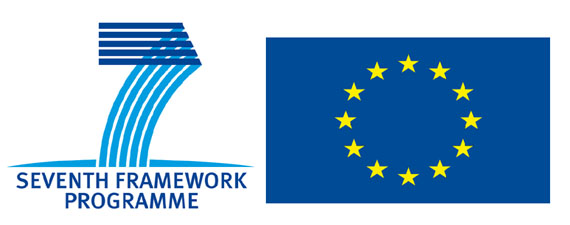
Augmented BNCI Communication (ABC)
Improvement in the communication capacities of people with cerebral palsy by using neuronal interfaces.
Aims
The ABC project is intended to increase human aptitudes by using neuronal interfaces. The applications developed will mainly be intended for people with cerebral palsy. Given the particular conditions of the target population, systems based on neural interfaces have great potential to improve their quality of life and boost their personal autonomy. Specifically, the project’s outcomes will focus on increasing their aptitudes for communication and learning, social participation and control over devices.
The ABC system will mainly consist of four independent modules based on the latest advances in neuronal signal processing, computer-assisted augmented alternative communication and monitoring biosignals. These studies will be led by entities that are European points of reference in each of these fields.
Users with cerebral palsy and healthcare professionals will be involved in the R&D tasks from the design phase up to validation. New methods will be developed focusing on the users to be able to effectively involve people with cerebral palsy in the design process.
The outcome of the project will be a functional prototype of the ABC system that is validated and operational in real-life environments. Two SMEs have been involved in the project to help the transition from prototype systems to their commercial equivalents, thereby shortening their time to market.
The modular structure of the ABC and the independence of its components will increase its commercial potential beyond the initial niche of people with cerebral palsy. Different combinations of the modules may be integrated into other niches for assistance devices such as those for people with multiple sclerosis or quadriplegia. Furthermore, the ABC modules (whether combined or independent) have the potential to be integrated in the chain of applications that benefit from augmented capacities such as games, remote training, occupational safety, driving assistance and more.
Collaborating companies
Sectores:
Healthcare
Bioelectronics
IT
Coordinator:
Instituto de Biomecánica (IBV)
Partners:
Fraunhofer Society / Fraunhofer Institute for Applied Information Technology (Fraunhofer)
Consejo Superior de Investigaciones Científicas (CSIC)
Graz University of Technology (TUG)
Eberhard-Karls-Universität Tübingen (UT)
Fondazione Santa Lucia (FSL)
Plux Engenharia de Biosensores LDA (PLUX)
Technaid S.L. (TCN)
Asociación Valenciana de Ayuda a la Parálisis Cerebral (AVAPACE)
Duration and reference no.
Start date: 01-11-2011
End date: 30-09-2014
Project reference no.: FP7-ICT-2011-7-287774

Project co-funded by the European Union as part of the 7th Framework Programme in the FP7-ICT-2011 call 7.


